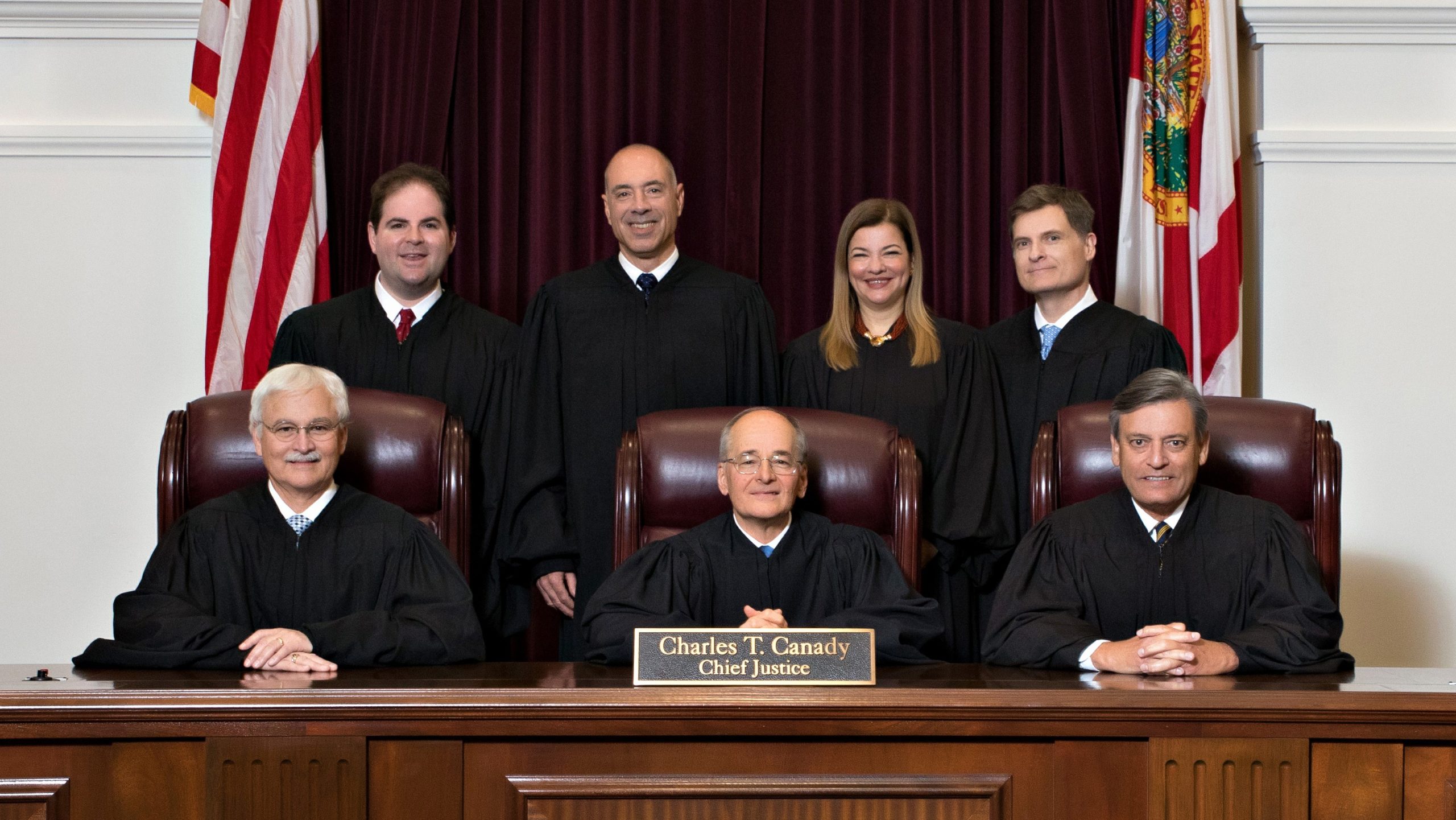[See also: Chair Provides New Details on Florida Study of Lawyer Regulation.]
The Florida Supreme Court has asked The Florida Bar to undertake a study of the rules governing the practice of law in order to determine whether revisions are needed to improve the delivery of legal services within that state.
In so doing, Florida joins a growing number of states — including Arizona, California, New Mexico, Oregon, Utah and Washington — that are studying changes in lawyer regulation with the goal of enhancing access to justice.
The Supreme Court directed the committee to look into the topics of lawyer advertising, referral fees, fee splitting, entity regulation, regulation of online service providers, and regulation of nonlawyer providers of limited legal services.
The court’s request came in a Nov. 6, 2019, letter to John M. Stewart, president of The Florida Bar, in response to an earlier letter from him suggesting such a study. The court’s letter, signed by Chief Justice Charles T. Canady, said:
“As discussed in your letter, the environment in which legal services are provided has been rapidly changing. In view of that changing environment, the challenges facing Florida lawyers, and the difficulties that many Floridians encounter in securing legal services, the Court agrees that The Florida Bar should conduct a study of the rules governing the practice of law to ensure that our regulation meets the needs of Floridians for legal services while also protecting against misconduct and maintaining the strength of Florida’s legal profession.”
The court asked Stewart to chair the study group and appoint its members. The letter asked that the study group complete its work and submit a final report by July 1, 2021.
The letter went on to say:
“In fulfilling the Court’s responsibility under Article V, section 15 of the Florida Constitution ‘to regulate … the discipline of persons admitted’ ‘to the practice of law,’ we are committed to ensuring a strong and vibrant Bar to meet the legal needs of the people of Florida and to enforcing appropriate ethical standards for Florida lawyers. The foundation of our efforts in this arena is the recognition that The Florida Bar exists to serve the people of our state. We believe that the study we are asking the Bar to undertake can assist us in carrying out this important constitutional responsibility.”
Last month, the American Bar Association approved a resolution calling on states to consider innovative approaches to the access-to-justice crisis and, in particular, to consider regulatory innovations that could improve the accessibility, affordability and quality of civil legal services.
 Robert Ambrogi Blog
Robert Ambrogi Blog